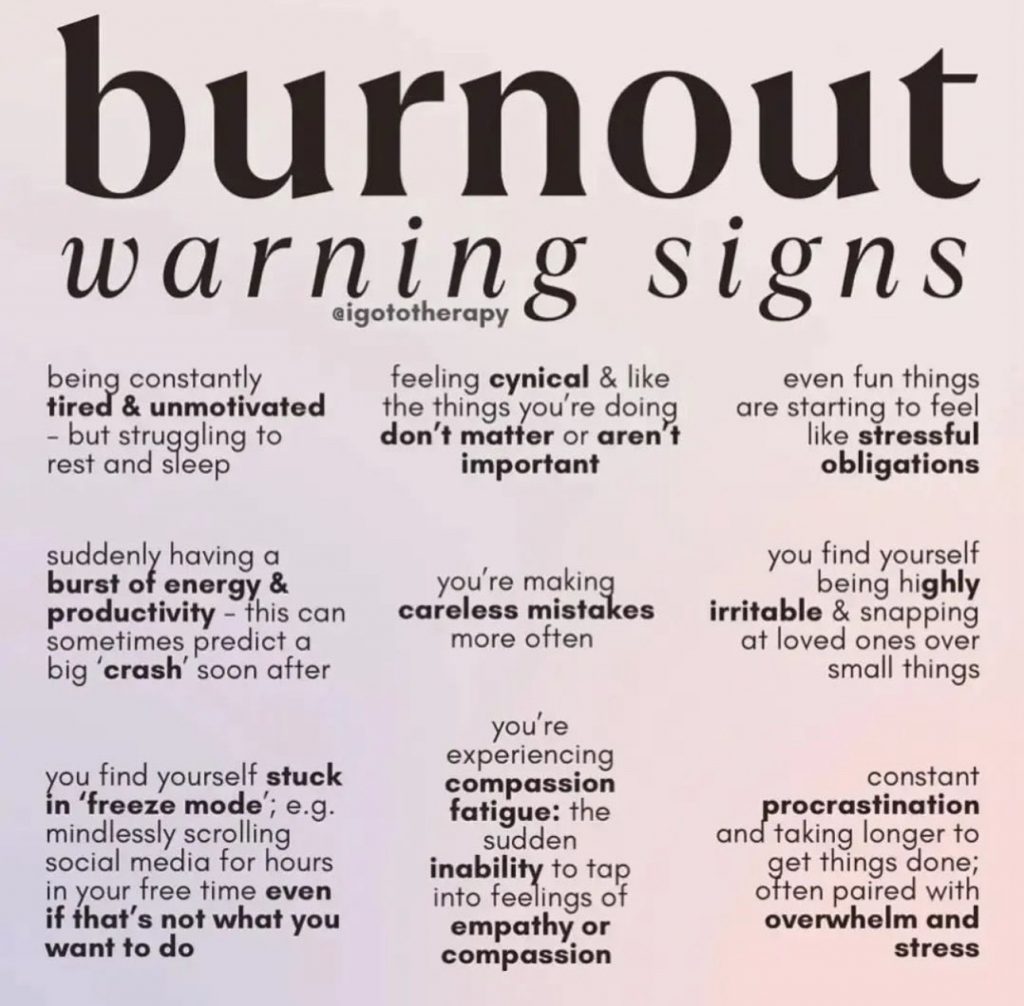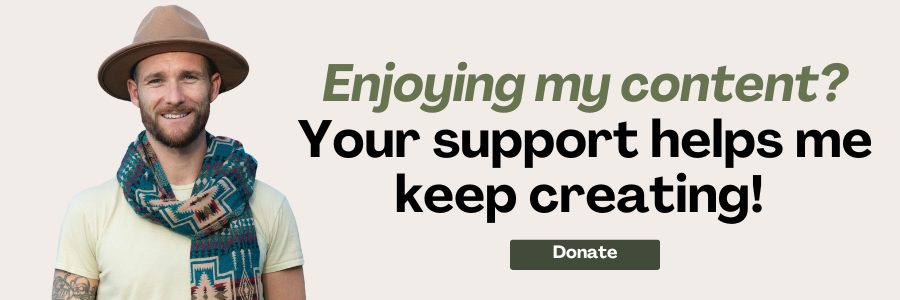I am at the tail end of my third period of burnout in my career. To say I learn the hard way is a complete understatement. But as they say, “third time a charm” – I think I finally learned the lessons to be learned from my burnout, and I want to pass the wisdom on to you.
Burnout is a form of exhaustion caused by doing too much, taking on too much responsibility, and not having enough time to rest. From a nervous system perspective, burnout is caused by the nervous system spending too much time in sympathetic (fight, flight, freeze, or fawn) and not enough time in parasympathetic (rest and digest).
We live in a culture that encourages us to constantly be doing more.
It is so easy to compare ourselves to others and feel like we are inadequate. We are then rewarded when we overwork. Many of us wear our busyness like a badge of honour, and the result is we are slowly losing connection to ourselves and the present moment.
The reasons people take on too much and become burnt out vary from person to person, but for many of us, it starts with an urgent need to prove ourselves in some way.
I want to share my story in the hope that you might relate to it and see some burnout patterns in your own life before it’s too late.
The driving force behind my burnout is over-functioning
Finding my worth in doing. Being of service as a career has led me to find my worth in providing for others, and somewhere along the way, I forgot about myself.
Where does a codependent pattern like this come from, you might be asking…
Here’s my take on it:
I was raised by a mother who was neglected as a child.
She was one of five children and grew up in a home with emotionally unavailable parents and an alcoholic father. Having her emotional needs met as a child was not something she experienced. I remember her telling me she felt unloved as a child. Being a sensitive and empathic child and growing up with a mother with this type of wounding had a huge impact on me.
Unintentionally, I felt this unconscious energy from my mother growing up that felt like, “If you look after me, I’ll look after you.” – I learned that If I were there for my mom, she would be there for me – it felt conditional. This was the origin of my self-abandoning. I learned that to get my emotional needs met, I had to hustle to meet her emotional needs. I then carried this codependent pattern into my romantic relationships and my career. I had a strong belief that I couldn’t say no to people, and if I did, they would be disappointed in me, and I felt as if I could not tolerate that. Essentially, I became a self-abandoning people pleaser where my needs became secondary, and I formed an imbalance between giving and receiving in almost all my relationships. I felt extremely uncomfortable when I would receive from people because I always felt like I would owe them something. I felt like I was conditionally loveable, only loveable when I was doing something for someone. My worthiness depends on my doing for others.
So I’m sure you can imagine that this level of over-functioning, poor boundaries around saying no, and fear of disappointing people was a perfect recipe for burnout.
I feel like I have finally mastered the lessons I needed to learn to clean up this codependent patterning in my relationships.
I am a firm believer that 80% of a transformation is awareness of what needs to be transformed and then becoming fully present with the parts that need tending to.
Here is a short process that can hopefully give you some awareness and insight into your own patterns that may be contributing to burnout or over-functioning:
Start by connecting to the over-functioning part of you; the feeling of urgency to do more. Begin to notice the thoughts, sensations, and emotions accompanying this urgency. Once you have differentiated yourself from this feeling by noticing it, I want you to ask your “over-functioning part” these 4 questions:
Connecting with your over-functioning part (ask the over-functioning part these 4 questions):
-
- What feelings are you protecting me from?
- What are the emotional needs you are fulfilling?
- What are you afraid would happen if you stopped over-functioning?
- How can I support you? (the over-functioning part)
Recognizing burnout in ourselves can sometimes be very difficult
Because we can easily dissociate or numb out from ourselves and not realize how exhausted we actually are. It’s like the frog in the water that starts to boil; the temperature gradually rises, and the frog doesn’t realize it before it is too late. This is why it’s important to take periods of rest so you can slow down and check in with your own capacity. Recognizing your own level of capacity and advocating for yourself around your capacity is the key to preventing burnout.
Here are some burnout warning signs to look out for:

The remedy for burnout is to slow down and rest.
To take on less.
To do less and be more (meet the present moment more).
Your ability to rest tells you a lot about the state of your nervous system – it reveals the absence of fear.
The need to over-function is often motivated by fear. Fear of not being enough, fear of failure, fear of rejection, fear of abandonment, fear of not being loveable, etc. When we rest, we can start to unpack the fear, and we will no longer be controlled by it.
My lesson from having burnout 3 times in my life:
the mind might win the battle, but the body will always win the war.
All along, my mind was bullying my body into doing more even though it was protesting to slow down through things like depression, exhaustion, injury, nervous system issues, etc. My mind kept winning the battles, and I kept going. But then it got to the point where my body shut down. I went into a deep depression that forced me to rest. I had to take a personal leave from work multiple times. The body has an innate wisdom and it is constantly communicating your capacity to you. If you don’t listen, it will force you to listen.
Moral of the story:
you can choose to rest, or rest will eventually choose you
If you struggle with burnout or any of the codependent patterning I spoke of, consider taking one of my ARE coaching programs. You will get all the resources you need to overcome over-functioning and codependency. You can check out my next two offerings below.
Lift your cheekbones,
Matt





